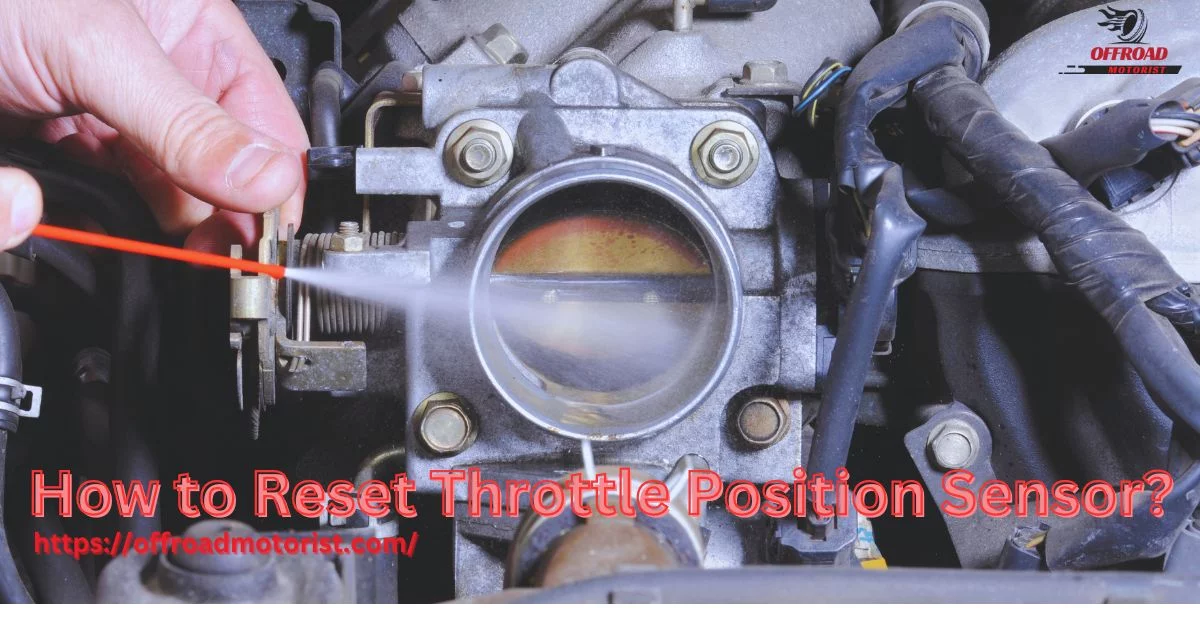Chevy Truck No Electrical Power| Expert Tips For Swift Solutions
Chevy trucks are popular among enthusiasts for their durability, performance, and dependability. However, like any vehicle, they can sometimes experience issues, including the sudden loss of electrical power.
Electrical problems can be particularly challenging, as they may leave you stranded and difficult to diagnose. This comprehensive guide, focusing on “Chevy truck no electrical power” issues, is designed to help you quickly identify the root causes of your truck’s power loss and provide practical solutions to get you back on the road soon.
Causes and Solutions of Chevy Truck No Electrical Power
Understanding the potential causes of electrical power loss in your Chevy truck and their corresponding solutions is crucial for efficient troubleshooting and optimal performance.
Here are the common causes and solutions discussed in detail throughout the article.
01. Dead or Weak Battery
A dead or weak battery is the most common cause of electrical power loss in a vehicle. If your Chevy truck’s battery cannot hold a charge, it will not provide enough power for the electrical components to function.
Symptoms:
- No power to the truck when turning the key
- Dimming headlights and interior lights
- Slow or failed engine cranking
Solutions:
- Test the battery using a multimeter or battery tester
- Check for loose or corroded battery terminals, and clean or tighten them as necessary
- If the battery is old or damaged, replace it with a new one
02. Malfunctioning Alternator
The alternator charges the battery and powers the vehicle’s electrical system. A failing alternator can lead to a loss of electrical power.
Symptoms:
- Dimming headlights and dashboard lights, especially when the engine is under load
- The warning light on the dashboard indicates a charging system issue
- Dead battery, even after being recently charged or replaced
Solutions:
- Test the alternator using a multimeter or take it to a professional mechanic for diagnosis
- Check the alternator belt for wear and proper tension, and replace or adjust as necessary
- If the alternator is faulty, replace it with a new one
03. Blown Fuses or Relays
Fuses and relays protect your truck’s electrical components from damage. A blown fuse or faulty relay can interrupt the flow of electrical power.
Symptoms:
- Loss of power to specific electrical components, such as lights, radios, or power windows
- No power even after replacing the battery or alternator
Solutions:
- Locate your truck’s fuse box and check for blown fuses or malfunctioning relays
- Replace any damaged fuses or relays with the correct type and amperage
04. Damaged Wiring or Connectors
Wiring damage or loose connectors can cause electrical power loss in your Chevy truck. Over time, wires can corrode, become damaged, or wear out, leading to intermittent or complete power loss.
Symptoms:
- Intermittent electrical issues, such as flickering lights or engine stalling
- No power to specific components, despite functioning fuses and relays
Solutions:
- Inspect your truck’s wiring harness for visible damage, corrosion, or loose connections
- Repair or replace damaged wiring or connectors as needed
05. Faulty Ignition Switch
The ignition switch sends power to the vehicle’s electrical components. A faulty switch may cause a loss of electrical power.
Symptoms:
- Intermittent loss of power when turning the key
- Difficulty turning the key or starting the engine
Solutions:
- Test the ignition switch for continuity using a multimeter
- If the switch is faulty, replace it with a new one
06. Grounding Issues
Proper grounding is essential for your truck’s electrical system. A loose, corroded, or damaged ground connection can lead to a loss of electrical power.
Symptoms:
- Intermittent electrical issues or power loss
- Flickering dashboard lights or other electrical components
Solutions:
- Inspect the ground connections throughout your truck, including the battery, engine, and chassis grounds
- Clean and tighten any loose or corroded ground connections
- Repair or replace damaged ground wires as needed
07. Faulty Starter Motor
The starter motor is responsible for turning the engine over during ignition. If it’s malfunctioning, it can result in a loss of electrical power.
Symptoms:
- No response or a clicking sound when attempting to start the engine
- Intermittent starting issues
Solutions:
- Test the starter motor using a multimeter or take it to a professional mechanic for diagnosis
- Inspect the starter motor’s wiring and connections for damage or corrosion
- If the starter motor is faulty, replace it with a new one
08. Malfunctioning Electronic Control Module (ECM)
The ECM is the brain of your Chevy truck, controlling various engine and electrical functions. A damaged or malfunctioning ECM can cause a loss of electrical power.
Symptoms:
- Engine stalling or misfiring
- Loss of power to multiple electrical components
- Check engine lights or other dashboard warning lights
Solutions:
- Have a professional mechanic diagnose the ECM using a diagnostic scanner
- If the ECM is faulty, replace it with a new or refurbished unit
FAQs on Chevy Truck No Electrical Power
This FAQs section addresses common questions and concerns about electrical power loss in Chevy trucks. By gaining insights into these issues, you can take the necessary steps to resolve them and maintain optimal performance for your vehicle.
So, let’s explore some frequently asked questions about Chevy truck electrical power loss.
Why does my Chevy truck lose electrical power while driving?
Losing electrical power while driving can be caused by various issues, such as a failing alternator, loose or corroded battery connections, grounding issues, or a malfunctioning ECM.
Inspect the various components and connections, and consult a professional mechanic if necessary.
Can a dead key fob cause my Chevy truck to lose electrical power?
A dead key fob battery will not cause your truck to lose electrical power. However, it may prevent you from starting the engine or unlocking the doors. Replace the key fob battery and ensure that it’s functioning correctly.
How can I test my Chevy truck’s battery for issues?
To test your truck’s battery, use a multimeter or battery tester. Set the multimeter to DC voltage and connect the red lead to the positive battery terminal and the black lead to the negative terminal.
A healthy battery should read around 12.6 volts when the engine is off and between 13.7 and 14.7 volts when the engine is running.
How do I know if my truck’s fuses or relays are causing electrical power loss?
To determine if fuses or relays are causing power loss, locate your truck’s fuse box and visually inspect the fuses for any damage or discoloration. Replace any damaged fuses with the correct type and amperage.
Test relays for continuity using a multimeter or consult a professional mechanic.
Can a weak or damaged serpentine belt cause electrical power loss in my Chevy truck?
A weak or damaged serpentine belt can cause issues with the alternator’s charging ability, leading to power loss. Inspect the belt for wear, damage, or improper tension, and replace or adjust it as necessary.
How do I reset my Chevy truck’s ECM?
Disconnect the negative battery terminal for approximately 30 minutes to reset your truck’s ECM. This will allow the ECM to reset and clear any stored error codes.
Reconnect the battery terminal, and start the engine. Remember that resetting the ECM may not resolve the issue if there is a persistent problem with the electrical system or related components.
Can a bad ignition coil cause electrical power loss in my Chevy truck?
A bad ignition coil can cause engine misfires, poor performance, and a check engine light, but it is unlikely to cause a complete loss of electrical power. However, a faulty ignition coil can indirectly affect the electrical system, causing the engine to stall or run poorly.
How do I diagnose a faulty ignition switch in my Chevy truck?
To diagnose a faulty ignition switch, look for symptoms such as intermittent power loss when turning the key and difficulty turning the key or starting the engine. Use a multimeter to test the ignition switch for continuity, or consult a professional mechanic for a thorough diagnosis.
How can I prevent electrical power loss in my Chevy truck?
Regular maintenance and inspection of your truck’s electrical system can help prevent power loss. Check the battery, alternator, starter motor, fuses, relays, wiring, and connections for signs of wear, damage, or corrosion. Address any issues promptly to maintain optimal performance.
Can a faulty fuel pump cause electrical power loss in my Chevy truck?
A faulty fuel pump can cause engine stalling, hesitation, and poor performance, but it is unlikely to cause a complete loss of electrical power. If your truck is experiencing power loss and fuel delivery issues, check the fuel pump relay and wiring for any problems.
How can I test my Chevy truck’s starter motor for issues?
To test your truck’s starter motor, use a multimeter to measure the voltage at the starter solenoid while attempting to start the engine. A healthy starter motor should have around 12 volts at the solenoid.
If the voltage is low or non-existent, inspect the starter motor’s wiring and connections for damage or corrosion. If necessary, consult a professional mechanic for further diagnosis and repair.
Can a faulty ground connection cause my Chevy truck’s electrical system to malfunction?
A loose, corroded, or damaged ground connection can cause your truck’s intermittent electrical issues or complete power loss. Inspect the ground connections throughout your vehicle, including the battery, engine, and chassis grounds. Clean and tighten loose or corroded connections and repair or replace damaged ground wires.
Final Thoughts on Chevy Truck No Electrical Power
Your Chevy truck’s electrical power loss can be frustrating to diagnose and resolve. By understanding the common causes and corresponding solutions, you can troubleshoot the problem more effectively and get your truck back on the road sooner.
Consult a professional mechanic to ensure a safe and effective repair when in doubt. Your truck’s electrical system is vital to its performance, and addressing issues can save you time, money, and headaches.

![Chevy Transfer Case Interchange Chart [Everything you need to Know] chevy transfer case interchange chart](https://offroadmotorist.com/wp-content/uploads/2023/03/chevy-transfer-case-interchange-chart-150x150.jpg)
![Mastering Headlights| Low Beam vs High Beam [Symbols, Functions, and Optimal Usage] Low Beam vs High Beam](https://offroadmotorist.com/wp-content/uploads/2023/03/Low-Beam-vs-High-Beam-150x150.jpg)







